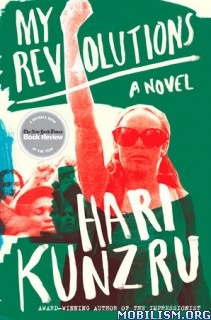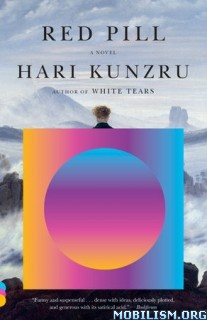Requirements: .ePUB reader, 2.5 MB | Retail
Overview: HARI KUNZRU is the author of six novels, Red Pill, White Tears, Gods Without Men, My Revolutions, Transmission, and The Impressionist. He is a regular contributor to The New York Review of Books and writes the “Easy Chair” column for Harper’s Magazine. He is an Honorary Fellow of Wadham College Oxford, a Fellow of the Royal Society of Literature, and has been a Cullman Fellow at the New York Public Library, a Guggenheim Fellow, and a Fellow of the American Academy in Berlin. He teaches in the Creative Writing Program at New York University and is the host of the podcast Into the Zone, from Pushkin Industries. He lives in Brooklyn.
Genre: Fiction > General Fiction/Classics


My Revolutions (2007)
“Powerful” (The New Yorker), “extraordinary” (The New York Times Book Review), and “brilliant” (Entertainment Weekly)—you won’t be able to put down this novel by the award-winning bestselling author of White Tears and Blue Ruin
Critics have compared him to Martin Amis, Zadie Smith, Tom Wolfe, and Don DeLillo. Granta dubbed him “one of the twenty best fiction writers under forty.” In My Revolutions, Hari Kunzru delivers his best novel yet.
Chris Carver is living a lie. His wife, their teenage daughter, and everyone in their circle know him as Michael Frame, suburban dad. They have no idea that as a radical student during the sixties, he briefly became a terrorist, protesting the Vietnam War by setting off bombs. Until one day a ghost from his past turns up on his doorstep, forcing Chris on the run.
Red Pill (2020)
A bold new novel about searching for order in a world that frames madness as truth from the widely acclaimed author of White Tears
After receiving a prestigious writing fellowship in Germany, the narrator of Red Pill arrives in the Berlin suburb of Wannsee and struggles to accomplish anything at all. Instead of working on the book he has proposed to write, he takes long walks and binge-watches Blue Lives, a violent cop show that becomes weirdly compelling in its bleak, Darwinian view of life. He soon begins to wonder if his writing has any value at all.
Wannsee is full of ghosts: Across the lake, the narrator can see the villa where the Nazis planned the Final Solution, and in his walks he passes the grave of the Romantic writer Heinrich von Kleist, who killed himself after deciding that “no happiness was possible here on earth.” At a party, he meets the charismatic Anton, creator of Blue Lives, and the narrator begins to believe that the two of them are engaged in a cosmic battle. Anton is “red-pilling” his viewers—turning them toward an ugly, alt-rightish worldview, he thinks, as he starts to wonder if he is losing his mind.
Download Instructions:
https://ouo.io/V67nqX
https://ouo.io/j5jkEj
